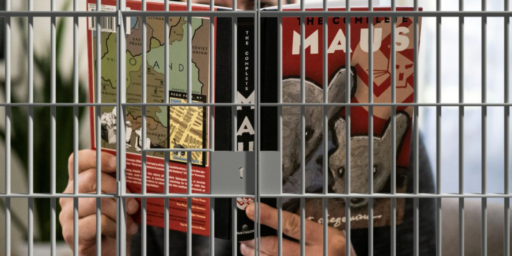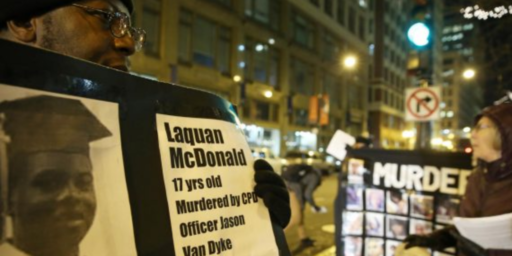52 Year Old Man Convicted In Juvenile Court Of 36 Year Old Crime
A truly odd case out of New York City:
ELIZABETH, N.J. — By all other measures it would be a routine case of the “C.S.I.” age: a detective working a cold case alights on a stray clue, and running a DNA sample, finds a man he believes is the killer. Thirty-six years after the crime, the man is brought to trial and convicted of murder.
But this 52-year-old man, now soft around the middle and wrinkled along the brow, was 15 at the time of the murder. And so, in a twist the judge called “extraordinary,” Carlton Franklin was tried as a juvenile.
His case was heard here this month in family, not criminal, court. And Thursday, after Judge Robert Kirsch found that he had killed Lena Triano — bludgeoning, raping, and stabbing — Mr. Franklin was not technically declared guilty, but rather, as “adjudicated delinquent.”
Now comes the tricky issue of how to punish him, which the judge will decide in January: Will he be sentenced according to a juvenile code that emphasizes rehabilitation over punishment, focusing on “wholesome mental and physical development”? Or will the judge look at Mr. Franklin’s life in the intervening decades, which have included 17 years in prison, but also a steady job and no criminal record in the 14 years since he was released?
Will the length of his sentence — or disposition, as it is called in juvenile matters — be dictated by laws in place in 1976, the year of the crime, or by current laws? Tried in a juvenile court, can he be held in a grown-up prison?
Even lawyers handling the case are unsure. “I don’t even think I can answer, because it’s so unusual,” said Mr. Franklin’s lawyer, Edward P. Bisichio. “I’ve never seen it before.”
Amusingly the story nearly exactly mirrors an episode of Law & Order in which a woman is arrested for a murder that she had committed in the 1970s when she was a teenager. Because the crime had been committed when she was a juvenile, she was tried in a Juvenile Court and could only receive the penalties applied to juveniles under New York law at the time of the crime. I’m not sure whether that’s an accurate depiction of the state of New York law or a plot device that was used in the show.






I’m surprised the prosecutor didn’t push to have Franklin tried as an adult. Isn’t that what happened in the Skakel case in CT? Skakel was due to be tried as a juvenile (at age 40), but a judge agreed–and so ruled–that he be tried as an adult.
@CSK:
It may be that the law in CT is different from the law in NY on that issue
@CSK:
It appears that New Jersey did not permit Juveniles to be tried as adults until 1978, so, thats not an option. Though from the article, it appears a life sentence is possible.
The law in CT. at the time of the Skakel murder was the same as the NJ law; CT minors had to be tried as juveniles even in cases of murder. But for Skakel, who was originally going to be tried as a juvenile, the judge made an exception, and ruled that he be tried as an adult.
In the Franklin case, it’s not clear whether the NJ prosecutor tried to push for a similar ruling. Franklin’s crime sounds very brutal.
In related news Doug Mataconis was sent to his room for the crime of stealing mallomars as a five year-old.
@michael reynolds: I have to admit you made me look up mallomars …
Can I get my parking tickets from the 1960’s cancelled ? I was only 16 years old when I got those and somehow they still show up on my record. Can they make my children pay for them when I am gone?